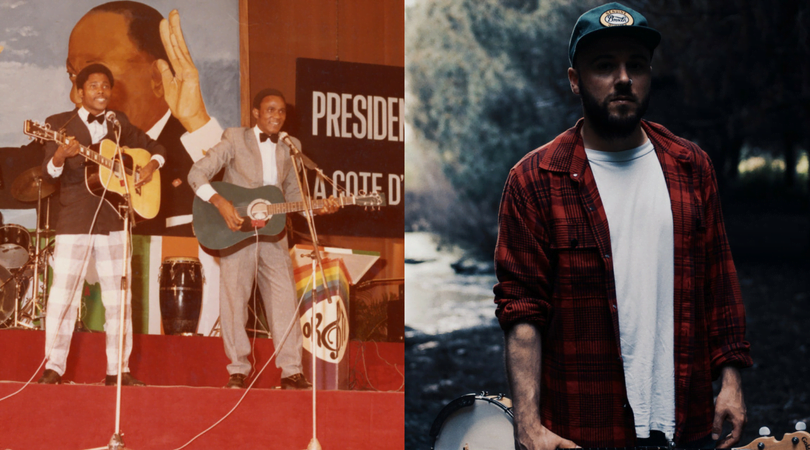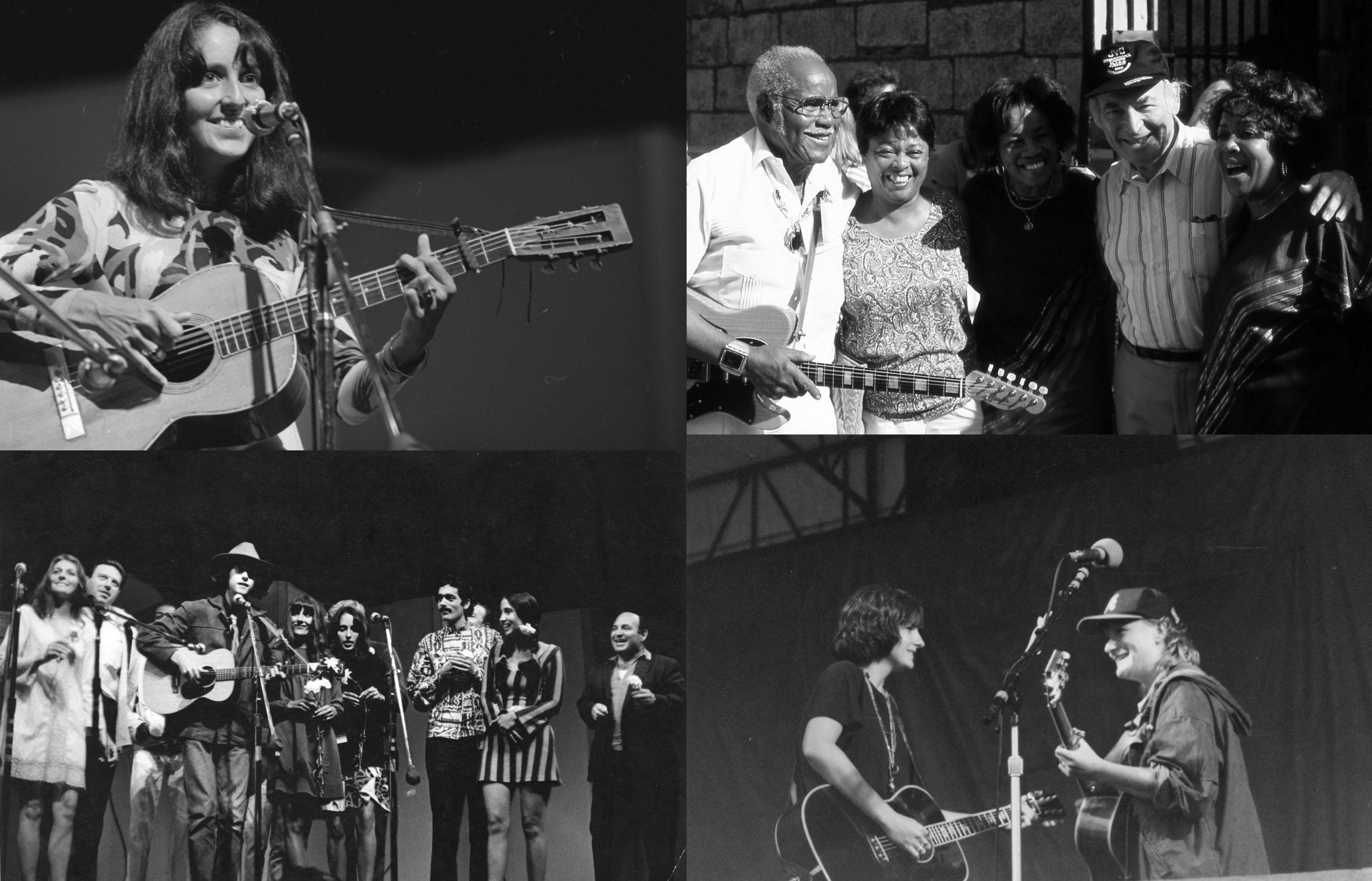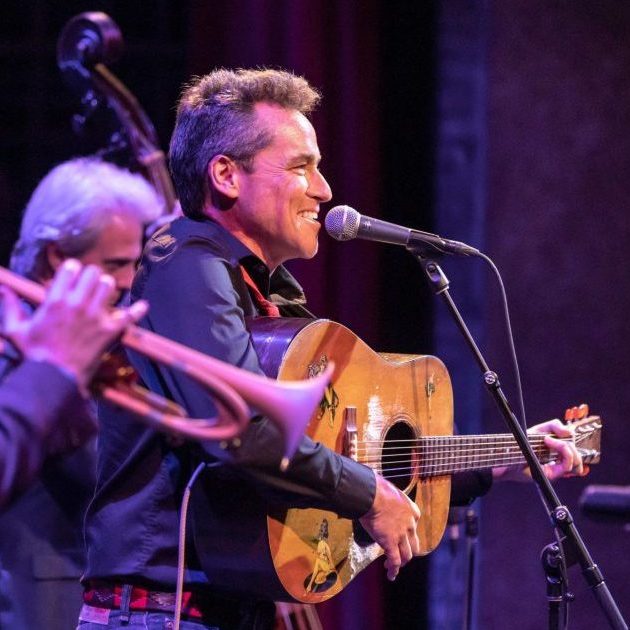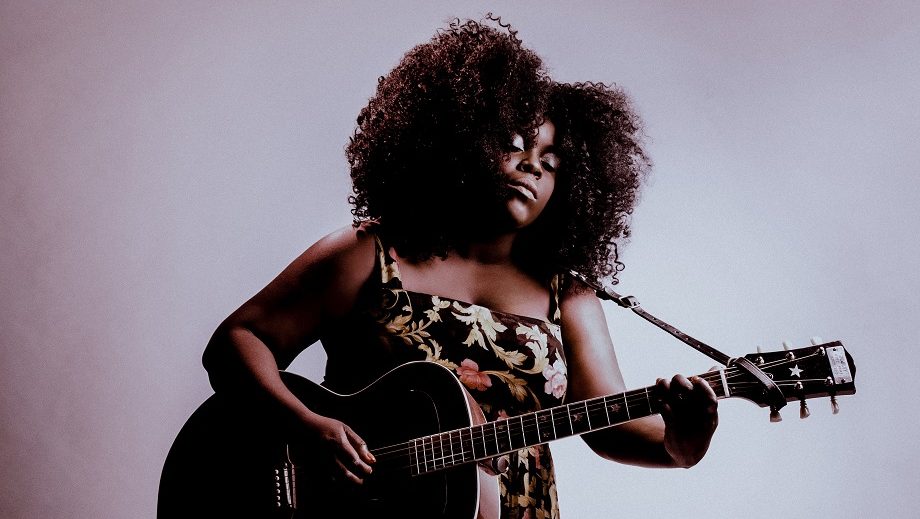Jess Sah Bi fondly remembers as a young man hearing Don Williams’ 1982 country hit “Listen to the Radio” played, well, on the radio, and becoming obsessed with country music.
Özgün Semerci sentimentally recalls Sundays in the late ‘80s watching old Westerns on TV with his dad and becoming enraptured with the sounds of the banjo.
Nothing unusual about either of those things, except maybe that the former took place in the town of Sinfra in the Ivory Coast and the latter in Istanbul, Turkey.
The fruits of each of those passions are now found, respectively and delightfully, in two fascinating album releases this month. And each is a revelation of the flow of musical inspiration from culture to culture.
Our Garden Needs Its Flowers, via the Awesome Tapes From Africa label, brings us a captivating mix of country and country-folk influences — replete with weeping steel guitar sounds — and West African styles made in 1985 by Bi and partner Peter One. Semerci’s A Nightmare on Clawhammer Banjo, from Turkey’s Lu Records, showcases a distinctive vision in a series of fantasias that bridge Appalachia and Anatolia.
Of course, we’re accustomed to American music sounds turning up in unexpected places. Delta blues interpreted as British skiffle, and later the British Blues Invasion. Skittering bluegrass mandolins in Tokyo. Jimi Hendrix guitar pyrotechnics in the Tuareg desert trance of West Africa. Psychedelic surf guitars everywhere from Cambodia to Peru to Bollywood.
But these artists and albums are in ways more surprising, more unexpected. And both are not part of movements, per se, but of individuals in pursuit of sounds that had seduced them. And while the two releases are very different from each other, their very existence bespeaks a common bond of dedication and invention, the latter just to achieve the basic elements behind them.
“I didn’t even know the music was American country music,” Bi says of his early exposure to it. “We used to listen to Crosby, Stills & Nash and then later Don Williams. This was so popular in West Africa because some radio host played his records every morning. He became a huge star in West Africa.”
Most of what he heard then, though, was French music (Ivory Coast is, of course, a former French colony) and various West African styles. All of that kind of got jumbled in when he started his own musical career, first playing in his brother’s band at age 15 — he’s 61 now — and then moving to the capital, Abidjan, where he and Peter One started working together.
“We started playing acoustic guitars and singing very simple melodies, like we sing in the village,” he says. “But our style was kind of different. With our style, people thought about country music. So we had to add more country music instruments to get more real country.”
That meant some research and adaptations.
“We have some musicians back home who listened to the sound,” he says. “We asked questions, ‘What instruments to play?’ We found out and did it.”
That’s not pedal steel in there, though, or even Hawaiian steel, as Nigerian star King Sunny Adé used to such great effect in the distinctive aesthetics of his ju ju music grooves.
“Use the bottle,” he and One were told. “Electric guitar with the bottle on the finger to make that sound.”
It clicked, their music becoming popular not just in Abidjan, where they ultimately had their own radio and TV shows, but in the region, with regular touring through the Ivory Coast, Benin and Burkina Faso. By the time they made the album they had a sound of their own, with songs in both English and French, looking beyond their borders to issues across the continent — one song is titled “Apartheid,” another “African Chant.”
And eventually each went not just beyond their borders, but halfway around the globe to the U.S., Jess Sah Bi currently living in San Francisco and Peter One, fittingly, in Nashville, playing music separately for the most part, but occasionally together. A few years ago, the original album caught the ear of Brian Shimkovitz, the dedicated music explorer behind the Awesome Tapes From Africa web site, who tracked the two of them down and arranged to reissue it. And now the two will team again for two shows celebrating the release, Aug. 17 at the club Zebulon in Los Angeles and Sept. 21 at New York’s Union Pool.
“African people playing country music in the United States,” Bi exclaims. “That’s something funny! African country music before a Caucasian audience that knows country. Different styles, different things. Life is more interesting. Our voice carries very loud!”
Bottleneck slide guitar, of course, is standard in blues music. But here at times it is employed with remarkable nuance and sophistication to give that Nashville feeling.
For Semerci, pursuing his banjo obsession was even more of a challenge. At least they have guitars in the Ivory Coast. Banjos in Istanbul? Not so much.
“Don’t get me started!” he says. “As I am the only banjo player around, there’s next-to-nothing banjo-related here. My ex-roommate was a girl from Austin, Texas, and my second-favorite banjo was a gift she brought me from home. Maybe this album might have never happened if it wasn’t for her. Thank you, Joy!”
An earlier attempt didn’t happen, as Semerci, when he acquired his first banjo some years ago, first used bluegrass fingerpicking technique, but though he says he got pretty good at it, ultimately found it unsatisfying for material he was working on and gave up in the course of recording an album.
“I was after a more mellow tone with the banjo and the clawhammer technique seemed more suited for me as a singer-songwriter, so I leaned toward that and almost immediately fell in love with it,” he says, saying that the style allowed him to come up with his own melodies in the playing.
He repeatedly watched instructional videos by Josh Turknett, Mike Iverson and Cathy Fink that he found on YouTube, obsessively listened to albums of both classic and contemporary players — icon Pete Seeger and Sam Amidon (who mixes classic styles with bold experimental approaches) “are two names that I hold dear,” and he cites Ken Perlman and Bob Carlin as key to his development as well.
“I tried to learn and played so many traditional songs, but my favorites are ‘Will the Circle Be Unbroken,’ ‘Cluck Ol’ Hen,’ ‘Bristlecone Pine’ and ‘Roll In My Sweet Baby’s Arms.’”
But in the course he developed his own approaches that suited his musical goals.
“I wasn’t just playing known rhythms and that made this process a whole lot more stimulating for me,” he says. “I know it’s a technical detail, but the hardest part of it all was using the drop-thumb with clawhammer. But I believe I found my way around it with loads of practice.”
And in that, he found a banjo “voice” at once drawing on the music he’d embraced from afar, and the culture in which he’d been raised.
“I live in Istanbul, but my roots go back to Anatolia,” he says. “For me, the raw sounds of clawhammer and the technique itself has an Anatolian-Turkish vibe of its own within. The Turkic/Anatolian music tradition is quite raw, poetic and idyllic. If there is a common ground between those traditions, it’s attitude.”
And, he notes, there is some sonic and perhaps technique overlap with the native Turkish instrument the cümbüs, with its metal body, stretched-skin head and five pairs of strings, as seen and heard in this video he sent.
The music he created on the mostly instrumental Nightmare sets its own course, though, some leaning more to the traditional banjo elements, some more atmospheric, maybe reminiscent in places of the Bernie Leadon/Eagles banjo-centric piece “Journey of the Sorcerer” (a.k.a. to many as the theme from the Hitchhiker’s Guide to the Galaxy sci-fi satire radio, TV and film adventures.)
And the album title? That’s from something else he watched on Turkey’s lone state TV station in his childhood.
“When I was a kid, the only thing that made me forget the nightmares of Saturday night horror movies was the sound of the banjo I heard in the westerns the next morning. I like being hung up on nostalgia and feeding from it while I write my music. That’s why I wanted to use the sound of the banjo as an element of horror on some parts of the album.”
And ultimately it’s a cathartic delight that reaches across continents and cultures.
“Whether it’s in America or in the steppes of Anatolia, people always find a way to say what they have to say through music,” he says. “And I just love that.”
Photo credit: Awesome Tapes of Africa for Jess Sah Bi & Peter One / Lu Records for Özgün Semerci






